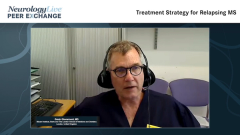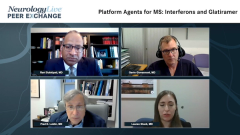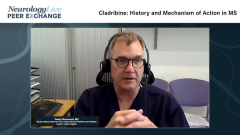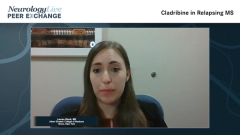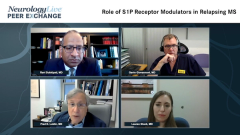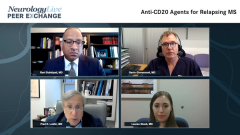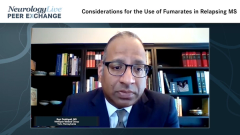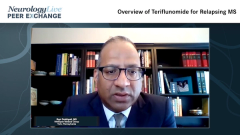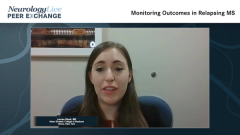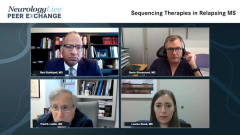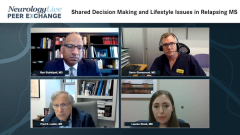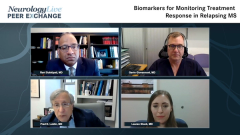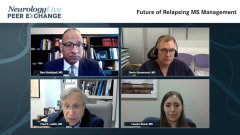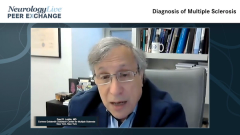
Shared Decision Making and Lifestyle Issues in Relapsing MS
A panel of experts emphasize the importance of shared decision making in relapsing multiple sclerosis and discuss lifestyle choices that impact the disease.
Episodes in this series

Fred D. Lublin, MD: I want to get into a very important area that Ravi’s going to take the lead on, and that’s shared decision-making.
Ravi Dukkipati, MD: We touched on this earlier, but shared decision-making is imperative in terms of ensuring patient compliance and adherence. I think our role, as neurologists, isn’t only to provide the most objective information for patients to have, but to direct them to safe treatment options, let’s say, rather than Dr Google or internet chat rooms. But there’s no question that if patients have a clear understanding of their disease, their potential prognosis, the risks and benefits of each choice, they’re more likely to stay on therapy or to be compliant with monitoring requirements. There’s a spillover effect. If they’re engaged with their disease and treatment plan, they are more likely to embrace other treatment options: diet, exercise, and such. There’s no question that we have to incorporate shared decision-making into our practice, and not be too archaic in our approach, throwing a drug at a patient and saying, “This is what I’ve chosen for you.” That’s an extreme. But the other thing that we should shy away from is handing patients 8 booklets and saying, “Read these over call me back in a week,” or, “Call my nurse in a week.” That isn’t of service to a patient. That’s overwhelming and breaks the fundamentals of treating and individualizing treating a patient.
Fred D. Lublin, MD: We can’t minimize this, especially now, with so many agents to inform patients of and to have them engaged. Lauren, tell us a bit about your experience with this.
Lauren Gluck, MD: I agree with everything Dr Dukkipati said. I often say that I can prescribe anything to a patient that I want to, but at the end of the day, they have to take it. So, if they don’t trust what I’m saying, if they don’t believe the reason for me prescribing or recommending certain medications, they’re not going to take my recommendation and they’re not going to do well. I try to understand where they’re coming from, their level of medical understanding, and their willingness to accept different risks. Whether it’s the patient who, if there’s any chance their MS [multiple sclerosis] could get worse at all, they won’t be able to tolerate it, and they want the strongest, most effective medicine, or the patient who can’t accept any risk of a small adverse effect to a drug. We discuss different options for safer DMTs [disease-modifying therapies], but yes, it’s definitely about talking to the patient, understanding their values, and understanding what their life plan is.
Fred D. Lublin, MD: Gavin, any thoughts?
Gavin Giovannoni, MD: Yes. I’ve moved away from this term “patient decision-making” to “guided decision-making” because we’re the experts, and we have so much more understanding. I try to steer the patient down to 1 or 2 choices. I also give them, Ravi, the option of them throwing it back and saying, “You make the decision for me,” because that’s a choice. Paternalistic medicine is a choice. Some people don’t want to be involved. It causes great anxiety, they get panic attacks trying to decide. They just can’t decide between drug X and drug Y. I remember with one of my highly active patients, I caused her almost to have a psychiatric breakdown because I told her she had to choose between alemtuzumab and natalizumab. This was about 4 or 5 years ago, and she was a nurse. I thought she had a lot of insight, and when I phoned her up, she was so relieved that I took the decision away from her. I think we have to identify that some patients don’t have the right makeup to make decisions, and we have to make those decisions for them.
Ravi Dukkipati, MD: Yes, you bring up a good point, Gavin. I would call it guided decision-making. I typically will educate a patient about 1 or 2 options, and ultimately, allow them to decide whether they would like to move forward.
Fred D. Lublin, MD: Part of the art of medicine is being able to read your patient and meet their needs. There are some people who are very engaged, who say, “Listen, I want to be heavily involved in what I put in my body.” And others are quite the opposite, saying, “This is why I came to you. Tell me what’s the best possibility.” But you still need to consider that there are a number of different choices. This gets into something I wanted to discuss briefly, and that is lifestyle issues because it’s part of the counseling we do with people, things like smoking and weight control. I’d also say diet, but given that we don’t have any good data yet on diet, it’s more a matter of debunking myths. Also comorbidities, which are becoming more important. We’ve alluded to the issues of the older patient with MS and some of the consequences of the medications, but part of those consequences relate to the comorbidities that come with older age that appear to have adverse effects on the underlying MS. Thoughts?
Lauren Gluck, MD: Yes, those are some of the most important things, especially once you have the DMT talk with patients that there are very few modifiable risk factors in multiple sclerosis. The biggest one, arguably, is smoking. If you have a patient who smokes, tell them the data behind the relationship between smoking and MS, and why the risk of increased relapse burden in smokers is so important. Encourage them to get to a place where they’re ready to quit smoking. Get their family involved in it as well. With nutrition, there is a lot of debunking. I tell patients, “You could go on the internet and find a lot of radical ideas. If you think it will benefit your life, go for it. But ultimately, by being at a healthier body weight, and potentially being on a heart-healthy type of diet, the rest of your body will be healthier. Your brain will likely be healthier, and try to control for obesity, which is a baseline inflammatory state.” I think all of those are very important. We talk a lot about vitamin D. There are some data that suggest it improves inflammation in the brain, but at the very least, vitamin D improves mood, energy, and bone health. Especially where I’m located, in New York, no one gets enough sunlight to utilize vitamin D properly, so we should all be supplementing.
Fred D. Lublin, MD: Thank you all for watching this NeurologyLive® Peer Exchange. If you enjoyed the content, please subscribe to our e-newsletters to receive upcoming Peer Exchanges and other great content right in your inbox. Thank you for joining us.
Transcript Edited for Clarity
Newsletter
Keep your finger on the pulse of neurology—subscribe to NeurologyLive for expert interviews, new data, and breakthrough treatment updates.

